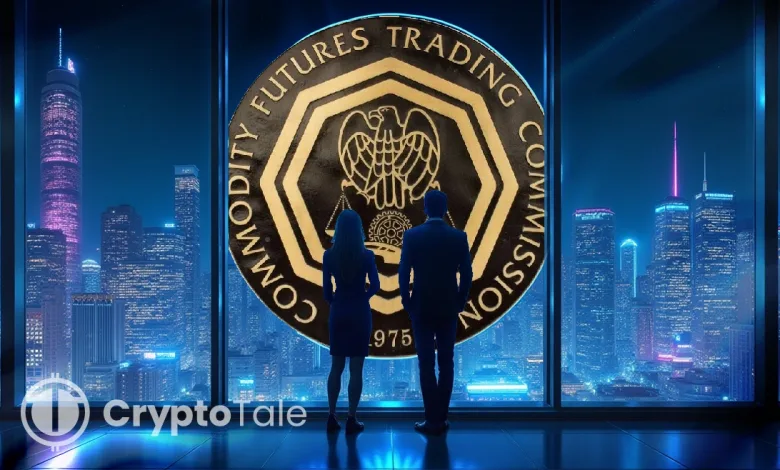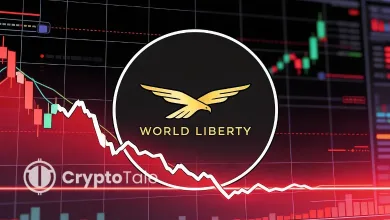Quintenz Nomination Stalls, White House Considers New CFTC Picks

- Quintenz’s stalled CFTC nomination leaves U.S. crypto oversight and markets uncertain.
- White House weighs Sterling, Selig, and Williams as possible new CFTC chair picks.
- CFTC launches a tokenized collateral review, with public input due on October 20.
According to multiple reports, the White House is considering Josh Sterling for the Commodity Futures Trading Commission chair. Officials seek a leader with extensive derivatives experience and fluency in digital assets. The search has broadened after Brian Quintenz’s nomination stalled in the Senate. These discussions could create a clear policy adoption for U.S. crypto regulation.
Candidates for the Next CFTC Chair
Sterling headed the CFTC Market Participants Division between 2019 and 2021, overseeing swap dealer, intermediary, and registrant policies. He later returned to private practice, advising institutional clients on investigations and rulemakings. His record signals a hands-on approach to market supervision and compliance.
People familiar with the process also indicated that officials have discussed Michael (Mike) Selig and Tyler Williams as possible picks. Selig has advised on crypto policy, while Williams has served as a Treasury counsellor on digital assets after time in the private sector. Those names reflect an emphasis on candidates’ ability to navigate crypto derivatives and tokenization issues.
Acting Chairman Caroline D. Pham continues to lead the agency while the administration settles on a nominee. In January 2025, Pham took on the role of acting chair and recently updated the leadership of the Global Markets Advisory Committee and its Digital Asset Markets Subcommittee, adding industry expertise to the ongoing agenda.
Why the CFTC Chair Matters for Crypto and Markets
The upcoming chair will oversee the Commodity Futures Trading Commission’s (CFTC) development and enforcement of regulations about cryptocurrency derivatives, margin requirements, and market integrity.
The commission already has authority over digital asset derivatives and has also taken notable actions like fining Binance, highlighting its role in regulating trading platforms and intermediaries. Furthermore, setting clear guidelines could improve market access for institutional participants, while adopting stricter policies would focus on risk management and consumer protection.
Jurisdiction with the SEC remains a key issue. Since April, Chair Paul S. Atkins has led the SEC, advocating for consistent rulemaking and showing interest in a market-structure approach that works with the CFTC. A permanent CFTC chair will shape how the two agencies divide oversight of tokens, digital commodity spot markets, and custody standards.
Advisory groups will also shape policy. Under Pham, the CFTC has elevated outside expertise on tokenization and stablecoins through the GMAC and its digital-asset subcommittee.
Also, the commission launched an initiative to evaluate tokenized collateral in derivatives markets and invited public input by October 20. The process could inform margin policy, collateral eligibility, and settlement mechanics for crypto-linked products.
Related: SEC Clears Standards Paving Way for Altcoin-Focused Crypto ETFs
Outlook: Policy Direction Hinges on the Final Pick
Quintenz remains the formal nominee on paper, yet the White House asked the Senate Agriculture Committee to pause a vote and began testing alternatives. That pause leaves the commission without a permanent leader during a pivotal window for market-structure decisions. A quick decision could stabilize priorities on enforcement, rulemaking, and cross-agency coordination.
If selected, Sterling would bring operational familiarity with swap-dealer supervision and registrant compliance. His history indicates that he might advocate using more understandable regulations for crypto derivatives while further controlling the risk and conduct.
If the White House instead chooses Selig or Williams, the choice would still favour a chair with crypto policy expertise who can negotiate jurisdiction with the SEC. Either way, the decision will determine whether U.S. crypto regulation moves toward clarity and innovation or retreats into tougher enforcement and stricter rules.




